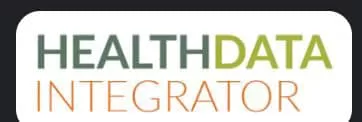Healthcare organisations (HCOs) all over the world are seeking innovative digital technologies that can simplify clinical workflows, enhance patient care, and improve business performance. However, the use of outdated IT systems and practices often stands in the way.
Data is now the driving force behind innovation, enhanced patient care, and operational excellence, making it the lifeblood of the industry. Nevertheless, with the exponential growth of healthcare data, effective data integration has become both an opportunity and a challenge. The use of outdated data integration systems and practices can impede an organisation’s ability to achieve its goals.
Traditionally, healthcare organisations faced challenges in integrating diverse data formats and sources efficiently. These challenges often resulted in fragmented data silos, decreased data accuracy, and hampered decision-making. However, with the advent of modern data integration platforms like InterSystems HealthShare Health Connect Cloud, these issues are becoming a thing of the past.
In today’s world, where the smooth flow of information holds utmost importance, healthcare data integration has become a necessity for providers, payers, and healthcare technology companies. This integration involves the seamless consolidation of data from multiple sources such as electronic health records (EHRs), laboratory systems, imaging devices, wearable sensors, and more. The ultimate aim is to equip healthcare professionals with comprehensive, real-time patient information, enabling them to make well-informed decisions and provide superior patient care.
The Challenge of Healthcare Data Integration
Healthcare data is inherently complex, coming in various formats and from different sources, making integration a significant challenge. Whether it’s electronic health records (EHRs), diagnostic data, or patient information, the ability to seamlessly connect and harmonise these diverse data sources is vital for delivering efficient healthcare services. Outdated integration systems can result in inefficiencies, data silos, and missed opportunities for improving patient care and operational efficiency.
Best Practices for Healthcare Data Integration
Data Governance: Establish clear data governance policies and standards. Define roles and responsibilities for data agents who oversee data quality, security, and compliance. They are meticulously designed to adhere to strict regulatory requirements such as HIPAA, ensuring patient data confidentiality and security.
Interoperability Standards: Adopt industry-standard interoperability frameworks like HL7 (Health Level Seven) and FHIR (Fast Healthcare Interoperability Resources) to ensure seamless data exchange between systems.
Data Mapping and Transformation: Invest in robust data mapping and transformation tools that enable data to be translated, standardised, and transformed into a common format for integration.
Real-Time Data Integration: Embrace real-time data integration to provide healthcare professionals with up-to-the-minute patient information for better decision-making.
Data Quality Assurance: Implement data quality checks at various stages of integration to ensure accuracy, completeness, and consistency of data.
Scalability: Choose a healthcare data integration solution that can scale with your organisation’s growing data needs and evolving infrastructure.
Security and Compliance: Prioritise data security and compliance with robust encryption, access controls, and auditing mechanisms to safeguard patient data.
Collaboration: Foster collaboration between IT teams, data scientists, and healthcare professionals to ensure that data integration aligns with clinical goals and organisational objectives.
A New Era
The concept of Data Fabric is emerging as a transformative idea in the field of data management and integration. It aims to achieve flexible, reusable, and enhanced data integration, which can help healthcare professionals access patient data across the entire healthcare ecosystem. With Data Fabric, patient monitoring is poised to undergo a paradigm shift, redefining patient care by providing real-time patient data.
According to Gartner, Data Fabric deployments are projected to quadruple efficiency in data utilisation while halving human-driven data management tasks by 2024. In essence, Data Fabric serves as a unified data management solution that seamlessly combines data from diverse sources into a harmonious, accessible format. It bridges the gap between electronic health records (EHRs), wearable devices, Internet of Things (IoT) sensors, and more. This capability facilitates early disease detection, personalised treatment plans, and heightened patient engagement.
Enhancing Patient Care
At the forefront of healthcare data integration solutions, InterSystems HealthShare Health Connect Cloud stands as a comprehensive Platform as a Service (PaaS) offering managed by InterSystems experts. This platform boasts a high-performance, multi-model data engine capable of seamlessly handling various healthcare data formats at high speed. What sets Health Connect Cloud apart are its capabilities:
Pre-built Data Transformations: Health Connect Cloud provides pre-built data transformations for popular healthcare data formats, reducing the complexity of data mapping and transformation.
Robust Data Security: With strong user authentication, authorisation controls, and data encryption, Health Connect Cloud ensures the utmost security of sensitive healthcare data.
High Availability: An impressive 99.9% availability SLA commitment ensures that healthcare organisations can rely on this platform to be available when needed most.
Streamlined Development: Intuitive drag-and-drop HL7 interface development makes it easier for healthcare IT teams to design and implement data integration workflows.
Scalability: The platform effortlessly scales to meet the needs of both small clinics and large, complex healthcare delivery systems, making it adaptable for organisations of all sizes.
Continuous Monitoring and Support: Health Connect Cloud offers 24/7/365 system monitoring and customer support, ensuring that healthcare organisations have assistance when they need it.
Looking ahead
Healthcare is a complex field that requires the integration of various data sources to deliver quality care, enhance operational efficiency and comply with regulatory requirements. With the rise of data-driven healthcare, it has become increasingly important for healthcare providers to master data integration best practices. This involves the accurate and timely collection, analysis, and utilisation of data from disparate sources to gain insights into patient care.
Thus, mastering data integration best practices is essential for delivering quality care, enhancing operational efficiency, and complying with regulatory requirements. The right technology enables healthcare providers to offer personalised care and by implementing best practices and harnessing the power of Data Fabric, healthcare organisations can thrive in the era of data-driven healthcare, ultimately leading to better patient outcomes and a brighter future for the healthcare industry as a whole.






























